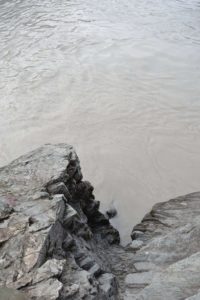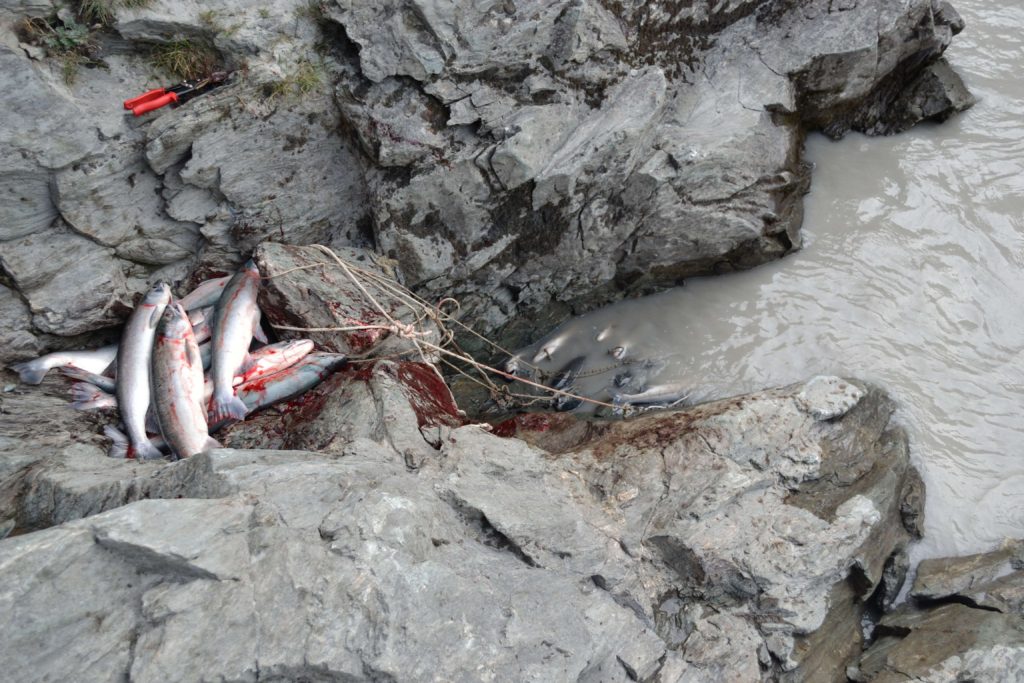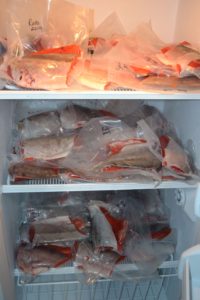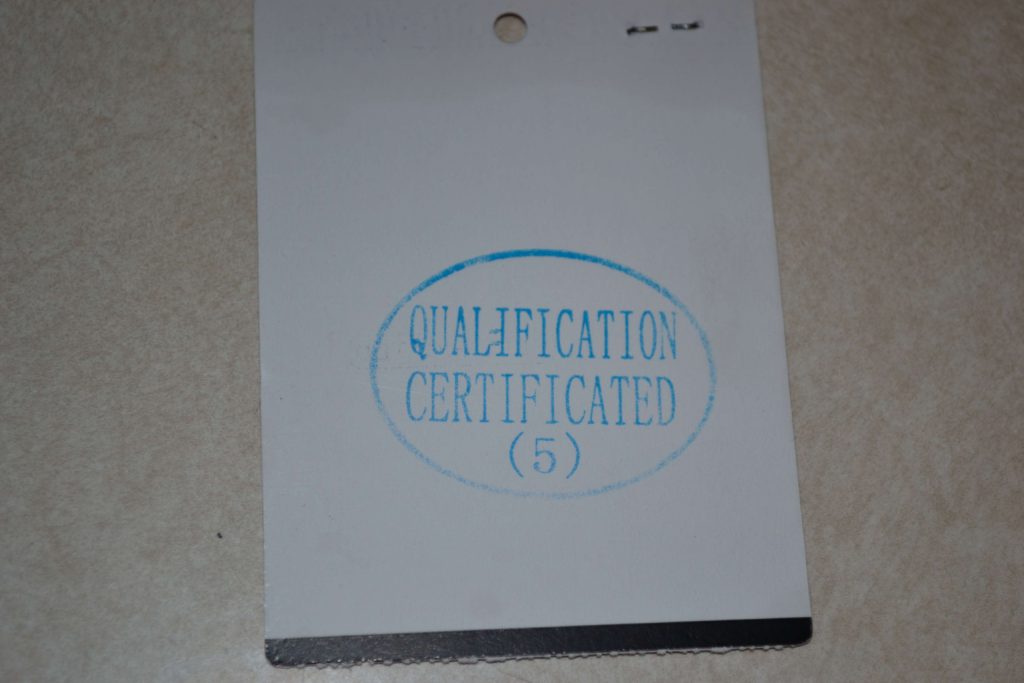I really needed to step away from it all for a few days. Not knowing if you’re going to still have a job because there’s been an ideological takeover of state government causes very high stress levels. Just about everyone I know at the university works hard and does a good job. And we have great students that we get to teach and work with. So you do what you’re supposed to do and do a good job and you’re at risk of being fired? Yep. That sucks. Yep. Especially when the need for what you do isn’t going away.
After our big effort to let the board of regents know they should not accept the governor’s proposal to zero out the museum and organized research at the university, I took a few days off. I’m off contract anyway; like most faculty, I have a nine-month contract. So I might as well take some time out to enjoy summer before it’s gone. It’s been a really busy year. Heck, we hadn’t even been out camping yet this year. Unprecedented.
So on Wednesday I prepared to rectify that. I put the camper on the truck and found and packed all the gear needed for a run to Chitina. I hadn’t had time yet this year to pay attention to conditions there, but I did know that it had been another high-water year and that the charter had had to close at least once due to unsafe water levels.
Now that I had time to pay attention—and very little time remaining to get fish—I found out a couple more things. Hem charters (Mark Hem and Sam McCallister) had initiated an online reservation system. No more running down on an instant decision like I’d gotten used to. More important, though, the run of red salmon (sockeye) in the Copper River this year has been excellent. Over a million fish have passed the Miles Lake sonar.
I drove down on Thursday for a Friday morning (2 August) foray onto the river. Rose couldn’t come this time. It was pouring rain in Fairbanks, but it was getting nice by the time I reached Delta, just 90 miles down the Richardson Highway. We like to stop at the IGA grocery store there when we pass through because it carries things we like that are not readily available in Fairbanks. I picked up two of those—smoked sprats and fresh apricots—and continued on down to Chitina. It’s about a six-and-a-half-hour drive from Fairbanks to O’Brien Creek.
There I found modest numbers of people. Nobody was at the fish cleaning tables; the day’s customers had filled out their limits, cleaned their fish, and gone home. That was a good sign. Jenna, who runs the filleting side of the charter business, said that fishing had been “just short of hot,” which suggested tomorrow was going to be good, too. I made dinner, read for awhile, and went to bed early hoping for fishy dreams.
But my dreams had spreadsheets and proposals, and making a case to an oblivious governor. It’s hard to get more than a few hours of sleep at O’Brien Creek anyway. People arrive to fish and then depart at all hours. On top of that, a lot of people didn’t get the memo that the charter switches opening hours on 1 August because it’s getting dark again. They start at 0545 instead of 0445 so it’s light enough to be safe out there. So by 0415 it was too noisy to sleep anymore.

I was on the second set of boats to go out (my place in the electronic queue), and so had time to think about those million fish. Plenty of them were still headed upriver this morning when me and my puny net were dropped off on a rock cliff face beside the roaring river. This is a landscape that makes you feel insignificant. The power of the river rushing by, the majesty of the cliffs, steep bluffs, and mountains, and the knowledge that you’re just a speck on the face of this big country is guaranteed to keep you humble. But I was a determined speck, eager to enjoy the day with 35 new friends: Copper River red salmon.
So I got situated. This was a particularly rough spot—barely room for one and only accessible from the water. But I’d been here before; I recognized the setup and the spot to hold the net. I put my gear into cracks in the rock and tied the net off to a projecting rock and then got it into the water to test things.

It was only about a minute before I felt a very small pulse on the net and I pulled in a fish. It was 0700. The current here was a fairly slow back eddy (ending a few feet away where it met the roaring river), so the fish tended to just sort of slump into the net. But they did so steadily, and I had 10 already after thirty minutes. A fish every three minutes is hot fishing. A couple of them were looking a little dinged up from having been in the river awhile, so I began throwing some back, judging each fish by size and condition. I had 18 at an hour and had to stop to put them on stringers because there was not room to pile any more.
This spot was really tight, and it required a fairly intricate ballet to keep everything where it belonged and out of the river. I would draw in the net and the fish and put the net rim into a rock crack to keep it ashore, then reach for my club in another crevice, pull the fish up by the net, club it into stillness, then remove it from the net, step around and over the propped net handle, pick up the aviation shears from another crevice, clip the tail fins (required by law) and a gill arch, then lay it on the only tiny patch of horizontal ground here. Then I’d spin, pick up the net and step under it, perch back on a very uncomfortable rock, and drop the net into the water again.

I wound up throwing six or seven back, but had my limit of 35 fish by 0930. The last two I’d pulled in as doubles, keeping the larger of the two each time. It had been nice, steady hard work. If it got slow, I could sweep the water close around my spot and like as not pick one up. I’d tossed off my life jacket and rain coat early on and was still hot. Just as I finished, the sun came out above the mountains on the opposite bank. I relaxed for a few minutes and had a sandwich before gutting the fish that I hadn’t put on stringers yet. This involved clinging my way down to the water’s edge with each fish and carefully gutting and rinsing it before returning it to the little patch of horizontal ground above me. It all worked fine, but it did take some care to be sure not to send me or any gear on a one-way trip downriver.
Mark Hem came by and picked up me and three other nearby fishermen at about 1030. One had gotten a late king salmon. Everyone had their limit. When we got back to O’Brien Creek it looked like we were the first to do so. I finished gutting my fish, iced them all down, loaded up, and headed out a little before 1300. I had some trouble with my truck battery on the way home, but a nice lady gave me a jump start at Summit Lake and I made it home a little after 1900, tired but happy.

The next morning, Rose and I set to it and cleaned the fish. We’d pushed our old vacuum packer to its limits last year and realized we needed a new one if we were going to do this again. I’d gotten one, a better model, and I’d made sure it worked alright on Wednesday. It came with a tag boldly claiming that it had been quality checked and that it was “Certificated.” We found ourselves to be pretty happy with it, so we can report that the quality check tag didn’t lie. Now we have about a hundred pounds of fish fillets in the freezer and life is good again.

P.S. I wrote a longer description of dip netting at Chitina here.

Pingback: Alaska Shoots Itself in the Head, Part 2 | Notes From Beringia
As a retiree who’s career was also in the academic sand pile I would like to offer you a response of a personal nature that would not be intended for public consumption. Please send me your personal email address. I enjoy your posts and personal tails of life in Beringia.
Still in the sandpile at kevin.winker@alaska.edu